MAY 8, 2025 — This year’s winners in the Research Achievement category of the UTSA University Excellence Awards came from an array of disciplines ranging from the study of exoplanets and brain abnormalities to ancient cartography and video game music. The recipients were recognized for their groundbreaking research, interdisciplinary collaboration, and leadership in their respective fields.
The researchers recognized this year are:
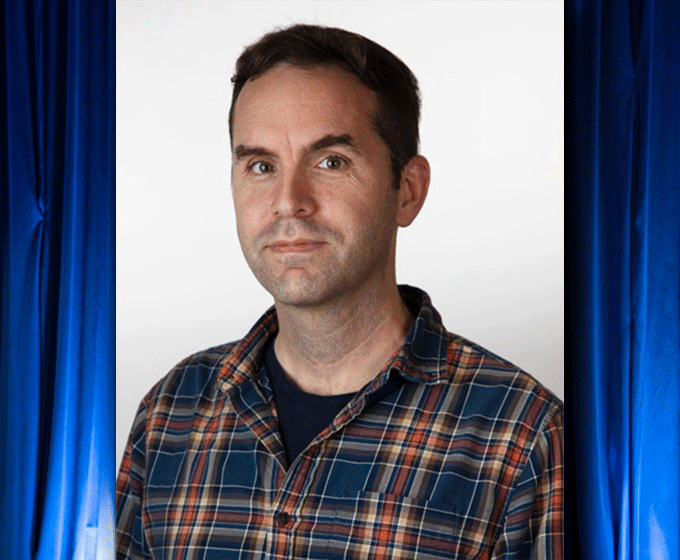
Currie is an accomplished astrophysicist and associate professor in the UTSA Department of Physics and Astronomy. He is widely recognized for his discovery and exploration of exoplanets — planets outside of our solar system that orbit another star.
In a paper published in Science in 2023, he analyzed data from the Subaru Telescope in Hawaii and the European Space Agency’s Gaia space satellite to capture the first-ever image of an exoplanet that is also jointly detected by astrometry, which measures the star’s precise location and enables researchers to measure the weight of planets. His strategy for finding new exoplanets to image is highly targeted, guided by evidence of the gravitational pull of a planet from the star’s astrometry. Of the roughly 6,000 exoplanets that have been discovered, only about 25 have been imaged. Currie’s novel approach could enable the imaging of many more.
Since joining UTSA in Fall 2022, Currie has secured over $1 million in funding from NASA and the National Science Foundation with a focus on discovering exoplanets and studying their atmospheres and formation. His research has over 7,000 citations with an H-index of 49. He now leads the world’s largest program to discover planets by direct imaging and is developing new technologies that could lead to the imaging of an Earth around another star.
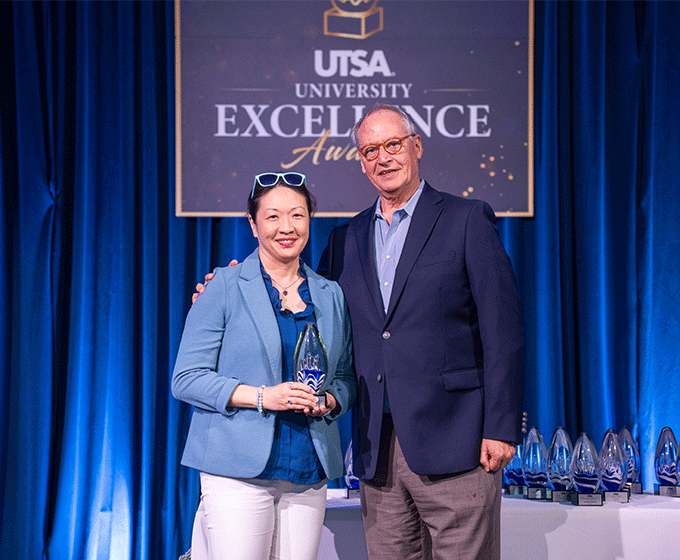
Hsieh is an expert in neuroscience specializing in developmental and regenerative biology. Her research focuses on brain abnormalities caused by cellular changes such as Alzheimer’s disease and epilepsy. Many of Hsieh’s studies involve the use of brain organoids. These are lab-grown structures that mimic parts of the human brain, enabling researchers to see how the brain develops and responds to various treatments and stimuli.
In addition to her renowned research and publications, Hsieh serves as the director of the Brain Health Consortium and chair of the Department of Neuroscience, Developmental and Regenerative Biology. She currently holds grants totaling $1.1 million and has over 10,000 citations with an H-index of 39.
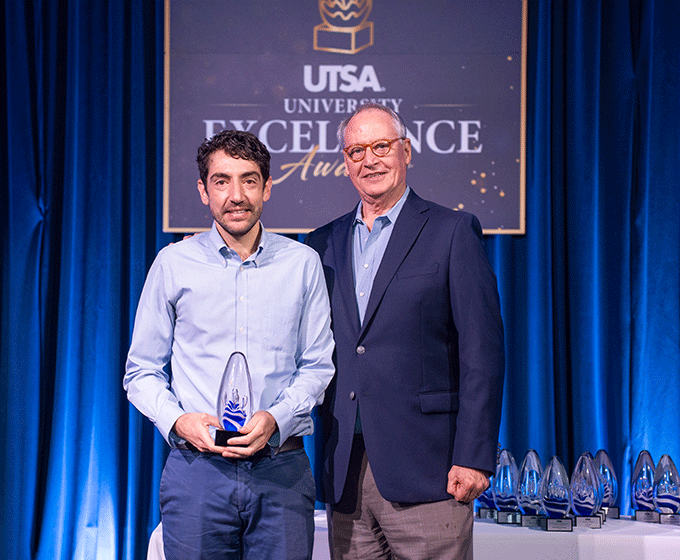
Thacker’s research focuses on three areas, each with the aim of addressing critical challenges in STEM education. These interconnected pillars include the development and use of innovative technology to elevate STEM education, the application of mathematics and data visualization to foster critical thinking and dispel preconceptions, and teacher beliefs and biases that contribute to achievement disparities in STEM. Last year, Thacker and his team shared their findings about biases commonly held among U.S. math teachers.
His innovation includes the design of gamified and experiential lessons for STEM education, including learning activities featuring augmented reality and soil data-exploration. His projects and collaborations have received funding from various agencies totaling $2 million in external grants.
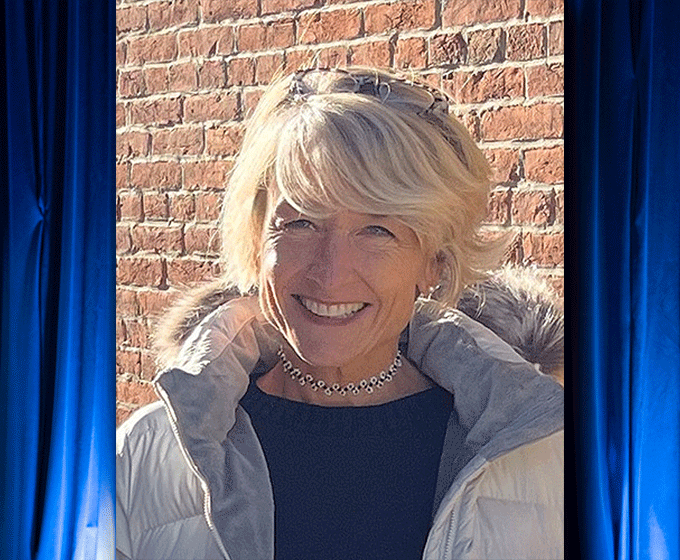
Wiersema is a specialist in the visual and material culture of the Pre-Hispanic and late Spanish Colonial Andes (Peru and Colombia). Her recent book, “The History of a Periphery: Spanish Colonial Cartography from Colombia’s Pacific Lowlands,” won the 2025 Association for Latin American Art Arvey Foundation Book Award. The book uses maps from 18th-century New Granada (today’s Colombia) to shed light on the interactions, politics and economics of the period. Her work was supported by a National Endowment for the Humanities fellowship and featured on New Books Network in April 2024.
Wiersema has secured several competitive grants that advance the impact of her research in interdisciplinary fields including history, Latin American Studies, cartography and geography. She is collaborating with the Library of Congress’ Preservation Research and Testing Division on identifying the paper, pigments and material aspects of Spanish colonial manuscript maps in the library’s collection. She teaches pre-Hispanic and Spanish colonial art history in the College of Liberal and Fine Arts.
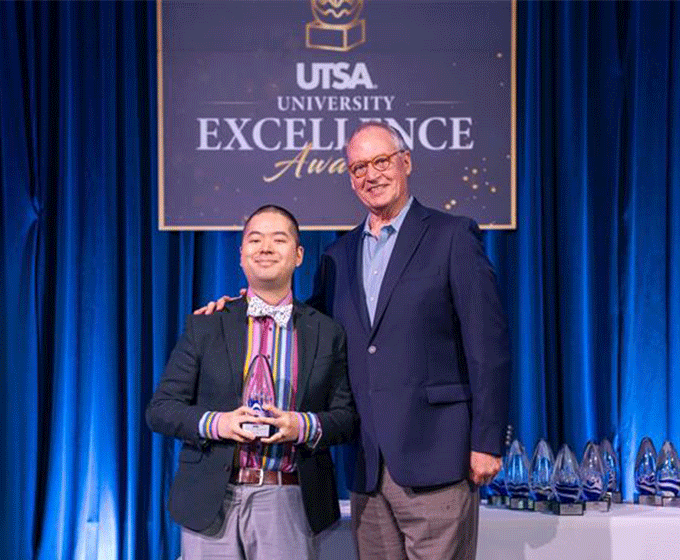
Yee is nationally recognized for his research on video game music, also called ludomusicology. His book, “Gender, Race and Religion in Video Game Music,” explores how music shapes players’ cultural values and conceptions about gender, race, nationality and religion.
In addition to studying music and musical semiotics, Yee composes music with a focus on narrative and meaning. While some of his works are crafted for video games, others are performed on stage. He composed an opera, titled “Eva and the Angel of Death,” which tells the story of Holocaust survivor and educator Eva Mozes Kor. His orchestral work, “The Musician’s Guide to Philosophy,” was awarded the American Prize for Orchestral Composition.
UTSA Today is produced by University Communications and Marketing, the official news source of The University of Texas at San Antonio. Send your feedback to news@utsa.edu. Keep up-to-date on UTSA news by visiting UTSA Today. Connect with UTSA online at Facebook, Twitter, Youtube and Instagram.
Move In To COLFA is strongly recommended for new students in COLFA. It gives you the chance to learn about the Student Success Center, campus resources and meet new friends!
Academic Classroom: Lecture Hall (MH 2.01.10,) McKinney Humanities BldgWe invite you to join us for Birds Up! Downtown, an exciting welcome back event designed to connect students with the different departments at the Downtown Campus. Students will have the opportunity to learn about some of the departments on campus, gain access to different resources, and collect some giveaways!
Bill Miller PlazaCome and celebrate this year's homecoming at the Downtown Campus with food, games, giveaways, music, and more. We look forward to seeing your Roadrunner Spirit!
Bill Miller PlazaThe University of Texas at San Antonio is dedicated to the advancement of knowledge through research and discovery, teaching and learning, community engagement and public service. As an institution of access and excellence, UTSA embraces multicultural traditions and serves as a center for intellectual and creative resources as well as a catalyst for socioeconomic development and the commercialization of intellectual property - for Texas, the nation and the world.
To be a premier public research university, providing access to educational excellence and preparing citizen leaders for the global environment.
We encourage an environment of dialogue and discovery, where integrity, excellence, respect, collaboration and innovation are fostered.